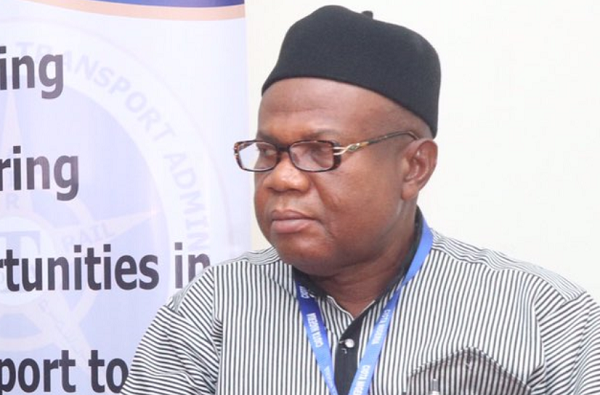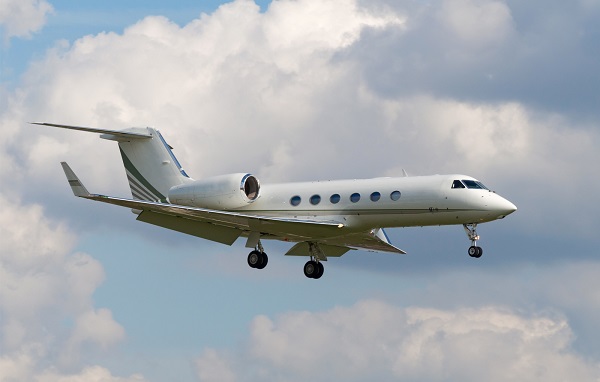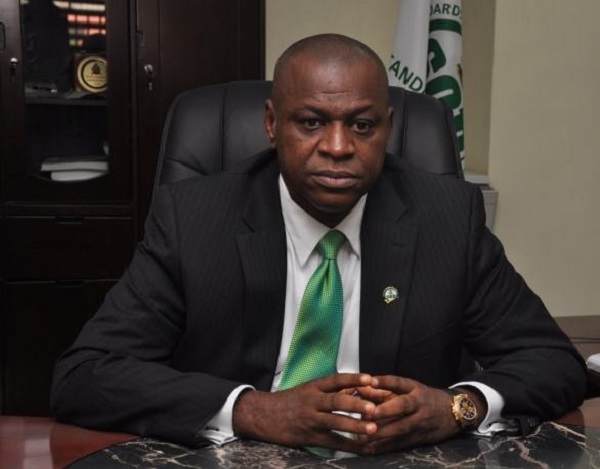How To Imbibe Professionalism In Nigeria’s Transport Industry – Ibe

By Kenneth Jukpor
Professor Callistus Ibe is the Dean, School of Transportation Management Technology at Federal University of Technology, Owerri. He is also the 2nd Deputy National President of the Chartered Institute of Transport Administration (CIoTA) Nigeria, in charge of membership and education. In this interview with MMS Plus, he gives into how Nigeria’s transport sector can attain optimum professionalism. He also harped on other crucial issues in the sector, during the National Transport Summit organized by CIoTA in Abuja, last week. Enjoy it:
This conference is about professionalism and taking transportation to the next level. How crucial is this event to the nation’s transport sector?
What we are doing today is a milestone in the transport development of this nation. You cannot develop transport without manpower input and the development of men that drive the transportation industry. Transportation is the only sector in this country that is driven by people that are not in the core profession. What you have seen today is an avenue to professionalize for efficiency to be driven and derived in the transport sector. By the time we do the advocacy that is needed, coupled with stakeholders buying into what we are saying, we will now make it compulsory for anyone in the profession to be a professional transportant.
We will have the seal just like we have in other professions. That is the aim and that is where we want to get to. We have to get it right for efficiency of the transport industry. When the transport industry is not developed, the nation cannot be developed. For now, we are wobbling, we want to sharpen the sector, we want to give it teeth to bite and by the time we give it teeth to bite, it is the human beings that will do the work. These human beings must be properly trained and that is what CIoTA is going to do. We will do the advocacy, we will discuss with the government and the stakeholders for them to buy into it and if everyone buys into it, the better it becomes for the country.
We had a challenge in the shipping industry where we have the concessioning of the seaport coming before the provision of an economic regulator to oversee affairs. Now, there is so much talk about concessioning the airport for efficiency and there is no economic regulator. As a veteran, how would you appraise the situation?
The issue of economic regulator is a problem in Nigeria. The country should have one economic regulator that regulates all the systems of transportation. In the seaport, we have gotten that but there is nobody checking them. In aviation, we are trying to do it. We need to go back to the drawing board and get a regulator. We should have a regulator for all modes of transportation. There should be one economic regulator that should have personnels in each of the modes to regulate the modal systems. If we don’t have an economic regulator, then there is a problem.
The regulator also has to be very knowledgeable, intelligent and be ahead of the operators. The regulator will dictate to the operators rather than the operators dictating to them as in the case of the seaports. The operators appeared to be a bit ahead of the regulator. We need to be prepared, we need to train the manpower, we need to get the personnel sharpened and we must also educate them on how best to do it. The economic regulator will ensure that everyone is kept in check so that the transport sector would be properly driven. We need one economic regulator for the whole transport system.
Do you think that the National Transport Commission bill should be re-floated?
That has been there and that is where we are moving to as an Institute. When we get our acts together, we will get there. We are moving towards that direction.
Looking at the Nigerian transport system, do you share the perspective that there is need for Public Private Partnership (PPP) to take up the role of transport infrastructure? Similarly, the Managing Director of NIWA also stressed that they will need CIOTA to play a role in sourcing for partners for PPP projects. Do you think that is the way to go?
That is advocacy. We need the private individuals to bring in money. Remember these investors are business men and they would go to a place where there is profit. For any investor to invest in any mode of transport, he will look for the mode of transport that is viable for him. Not all transport systems may be viable. Rural transportation may not be viable but he can invest in traffic routes, maritime, inland waterways or rail.
Government made the infrastructure and this infrastructure will be managed by individuals. That is why it is important to have one economic regulator. Government has to play its role, they can’t walk away. However, in playing this role, the government does not have enough resources. This is where we need investors to complement. The investor will only invest in where there is profit because he is driven by profit motive. The regulator balances the investor between the work he is doing and his profit motive so that he will work, make money, and also provide infrastructure for the system to function well.
So, you can see the roles of each person because we need each other. The government needs the private investors and vice versa. What does the stakeholder need? He wants to move at an efficient cost and reduced time. The PPP comes into play too because this will also reduce time for transportation.
President Muhammadu Buhari did the ground breaking exercise of the Transport University recently; how crucial is this to the industry?
It’s good for the industry because you need to train manpower and we need to have the required technology. Having this university shows that there is more emphasis and Nigeria is now serious with the role of transportation. Nigeria is recognizing that transport is key to development.
Some stakeholders have expressed concerns that the location of the university is political. What can you say about this?
I’m of the opinion that the infrastructure should be available first. We travel abroad to read, and so the location doesn’t matter. Let’s remove politics from it. No matter where it is, people can go there and read. There should be fair playing ground for everyone. We travel abroad to study, so why can’t we read in Nigeria?
However, the project should not be localized. It should be seen as a national project that will attract the best brains. If the best brains are not attracted, then we will be making a mistake.
One of the biggest issues in Port Management has been the absence of rail linkages to crucial port like Tin Can port and there is also a growing concern that the Lekki deep seaport project and Dangote refinery coming on the same axis does not have connection to the rail. What is your opinion about this sir?
There is disconnection between the different infrastructures. If I were to be Dangote, the first thing I would have done would be to link that place with rail. The inland waterways, rail and roads should be working fine. They should be linked to other modes like airports and piping where necessary. When all these things are working efficiently, then we have integrated transportation. An integrated transportation is a transport system whereby a person can move any point in time by taking decisions and it becomes seamless. In integrated transportation, Nigeria’s transportation system would have been developed. If our transport system is developed, I can be here in Abuja with the option of going by air, rail, road or through inland waterways. In that case, it is better and easier to move.
CIOTA has come onboard to enshrine professionalism. What word of advice do you have for those who are already practicing, but aren’t professionals?
There is training and retraining. There is mandatory professional development training. Those who are not trained yet would be trained and they would fit in. There is an opportunity for them to be retrained. Learning is continuous and if you know what you are lacking, you should go for it.
There are new modes of transport systems linked with technology such as mobile applications for taxi, motorcycles, etc. Would CIoTA also open its doors to those coming from these angles?
Those operating there should be part of this. We are speaking of human beings and not the mode. We train the human beings and they in turn coordinate the modes. The operators will be trained so that they can get the best out of it. When you have people who are trained, efficiency would be increased. That is the essence of professionalization.







